Add diverse voices and fresh content to your lessons with free, high-quality podcasts.

If you haven't thought about how you might use podcasts in your teaching, take note: The percentage of people who listen to podcasts each month continues to rise, and educators are discovering lots of opportunities in listening to (and creating!) podcasts.
There are lots of benefits to using podcasts in the classroom. For one, most podcasts are free (though you'll probably have to fast-forward through some ads). And you can find podcasts on nearly every topic, from science questions to lesser-known history, and in nearly every genre, from short fiction to in-depth journalism. Plus, they address common concerns among teachers about listening skills and attention spans.
To help you get started, we've put together a list of our favorite podcasts for the classroom. Use the grade recommendations as a guide, and age them up or down as needed. Some content in these podcasts can be mature, so always preview the episodes before you share them with students. Plus, a couple are available in Spanish as well!
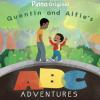
Quentin and Alfie's ABC Adventures
Grades Pre-K to K
Alfie and his babysitter, Quentin, visit places associated with letters of the alphabet. Through songs, friends, and activities, each letter is celebrated in the 26 episodes of the podcast. Another five episodes give special attention to the vowels!
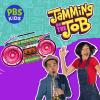
Jamming on the Job
Grades K–2
This PBS Kids podcast is hosted by Christina and Andrés, who introduce different careers in each episode. A guest describes what they do for work, and details are shared with catchy songs and activities to do while listening. They also make time to weave in Spanish words and phrases.
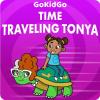
Time Traveling Tonya
Grades K–2
Tonya and her tortoise friend Gertie travel through time to meet a variety of historical figures. Along the way, they learn about the person's accomplishments and impact on the world. Because Tonya is 8 years old and Gertie is 186, their difference in perspectives provides interesting insights on history.

Circle Round
Grades Pre-K–5
Circle Round is an engaging, gentle storytime podcast aimed at kids. In every episode, narrator Rebecca Sheir tells a lesser-known folktale or story from around the world, helped by a rotating voice cast of talented stage and screen actors. The stories are captivating and compelling, and are nearly always accompanied by a positive message or moral. Free coloring pages are available for each story.

But Why: A Podcast for Curious Kids
Grades K–5
Kids are always asking seemingly simple questions that have surprisingly complex answers, such as "Why is the sky blue?" and "Who invented words?" This cute biweekly radio show/podcast answers them. Each episode features several kid-submitted questions, usually on a single theme, and with the help of experts, it gives clear, interesting answers.

Story Pirates
Grades K–5
Nothing can really match original stories from kids when it comes to absurd comedy. In each episode, the Story Pirates crew—a group of talented improvisers pretending to be pirates—read short stories written and submitted by kids and then reenact them with hilarious results. There are even original songs, famous guest stars, and interviews with the young authors about how it feels to have their work adapted. Kids can submit their stories to Story Pirates (with the help of a grown-up), which could make for a fun, real-world way to end a classroom writing unit.

Wow in the World
Grades K–5
Wow in the World takes kids (and their grown-ups) on a journey fueled by curiosity and wonder. In this weekly show, hosts Mindy Thomas and Guy Raz explore the science behind topics that kids will love, from singing mice and wombat poop to the amazing power of a dog's nose. Teachers can get access to classroom activities and conversation starters with a membership to Tinkercast, the company that produces Wow in the World.

Brains On! (and in Spanish)
Grades 1–6
Similar to But Why, this is another podcast that takes kid-submitted science questions and answers them with the help of experts. What makes this one different is that it tends to skew a bit older, both in its questions and answers, and it has a different kid co-host each week. The result is a fun show that's as silly as it is educational. Teachers can encourage students to take one of the topics and research it more completely, or to use it as a jumping-off point for science experiments and research-related questions.
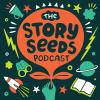
The Story Seeds Podcast
Grades 1–8
Inspire young writers with this innovative series in which award-winning children's authors interview a kid or tween with a great story idea, and then write and read aloud a story inspired by the kid's idea. Kids can submit a "story seed" on the podcast's website and join the Story Seeds Society to get writing prompts and inspiration.
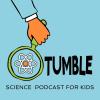
Tumble (and in Spanish)
Grades 3–6
Often compared to a kid-friendly Radiolab (see below), this podcast not only addresses fascinating topics, but also tries to foster a love of science itself by interviewing scientists about their process and discoveries. The hosts don't assume that listeners have a science background—but even kids who think they don't like science may change their minds after listening to this podcast. Teaching materials for the episodes are available for purchase on the podcast's website.
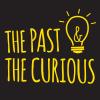
The Past and the Curious
Grades 3–8
History meets humor in this silly series that introduces little-known stories (like the origin of Typhoid Mary) and unsung heroes from the past. There's even a quiz at the end of every episode to test how well kids have paid attention.
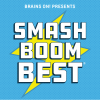
Smash Boom Best
Grades 3–8
This fun and fast-moving spin-off of the popular Brains On! podcast is in a kid-friendly debate format. A kid judge listens to and scores the rousing, fact-based arguments of two contestants. With episodes like "Piranhas vs. Venus Flytraps" and "Pizza vs. Tacos," kids will be hooked, and they won't even notice that they're learning how to defend their ideas along the way. Use Smash Boom Best in a persuasive writing or speech unit, or as a fun addition to your science or history class!
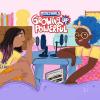
Rebel Girls: Growing Up Powerful
Grades 4–8
Based on the hit book series, these short episodes focus on growing up, puberty, mental health, and more. There are expert interviews and a lot of variety. The biggest downside is that free episodes are limited, but if you're teaching these topics, this podcast could be a great companion piece of content!
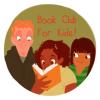
Book Club for Kids
Grades 5–8
This excellent biweekly podcast features middle schoolers talking about a popular middle-grade or YA book, as well as sharing their favorite book recommendations. Public radio figure Kitty Felde runs the discussion, and each episode includes a passage from that week's book read by a celebrity guest.
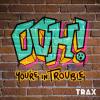
Ohh You're in Trouble
Grades 5–8
We often only warn kids about what not to do, but this podcast faces the misbehaviors, tricks, and rebellions of tweens and teens head-on. Each episode explores a different story, told by the person who lived it. You can use the prompts tied to each episode to open discussions about the choices that the narrators made.

Radiolab
Grades 6–12
This Peabody Award-winning radio series/podcast delivers scientific ideas in a creative, innovative way. The episodes are a joy to listen to, with a great deal of emphasis on sound design in addition to the hosts' clever banter. Teachers of science, math, ELA, and other subjects can use full episodes or segments as prompts to get kids thinking or to kick off a discussion. Some episodes feature strong language, so be sure to preview them before sharing with students.

Science Friday
Grades 6–12
Science Friday with Ira Flatow covers a variety of complex science topics, from the first Apollo moon landing to climate change and how exercise affects the heart. On the show's website, listeners can access full episodes or choose from a selection of shorter segments from the episode. Related articles and videos are also available to supplement the audio. For teachers, there are free STEM activities, lessons, and resources.
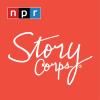
StoryCorps
Grades 6–12
One of the largest oral history projects of its kind, StoryCorps has recorded the stories of over 250,000 people in the United States. Students at just about any grade level or in any subject area can use the interviews in a variety of ways, including as writing prompts, discussion topics, primary sources for research projects, and more. Students also can record their own stories. StoryCorps Education provides teachers with free lesson plans and support to use StoryCorps in the classroom.

Stuff You Missed in History Class
Grades 6–12
Little-known history comes alive three times a week in this fascinating, comprehensive podcast from the people at HowStuffWorks. With a focus on weird events, overlooked stories, and underrepresented groups, this popular series is educational, too. The extensive archive is easily searchable by topic. Teachers can find supplemental material for lessons on the civil rights movement, European history, World War II, and much more.

This American Life
Grades 6–12
This popular NPR radio show and podcast combines personal stories, journalism, and even stand-up comedy for an enthralling hour of content. Host Ira Glass does a masterful job of drawing in listeners and weaving together several "acts" or segments on a big, relatable theme. Teachers can browse the education resources on the show's website to learn how other teachers are using This American Life in the classroom. Many episodes feature mature concepts and swearing, so always preview the episodes before sharing with students.

This I Believe
Grades 6–12
This I Believe was a radio series on NPR (now archived) that focused on the writing, sharing, and discussing of people's core beliefs through short personal essays. In the classroom, teachers can use This I Believe to get students to write about their own experiences. Personal experiences, beliefs, and values can make a rich foundation for classroom discussions, but you'll want to make sure you've created a safe space for sharing. A companion book and website offer plenty of resources for teachers and students to work on personal essays.
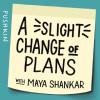
A Slight Change of Plans
Grades 8–12
This podcast is all about "who we are and who we become in the face of big change." Many episodes feature an interview with someone who has had an intense experience and emerged stronger on the other side. Other stories are less intense and lighter. There are some ties to history, mental health, difficult choices, and more.

1619
Grades 9–12
Part of the New York Times' Pulitzer Prize-winning project observing the 400th anniversary of American slavery, this audio series is challenging, thought-provoking, and an essential resource for teaching about the history and legacy of slavery. Consider pairing the series with the 1619 Project Curriculum from the Pulitzer Center.
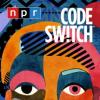
Code Switch
Grades 9–12
Another excellent resource for learning about race and culture, this NPR podcast looks at news and history through a multiracial, multigenerational, and multicultural lens. Although some episodes might not be appropriate for younger students, the creators of the podcast have created a playlist of kid-friendly episodes.
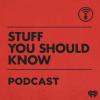
Stuff You Should Know
Grades 9–12
From the people behind the award-winning website HowStuffWorks, this frequently updated podcast explains the ins and outs of everyday things from the major ("How Free Speech Works") to the mundane ("How Itching Works"). Longer episodes and occasional adult topics such as alcohol, war, and politics make this a better choice for older listeners, but hosts Josh and Chuck keep things engaging and manage to make even complex topics relatable. And with nearly 1,000 episodes in the archive, you might never run out of new things to learn.
Frannie Ucciferri contributed to this article.








